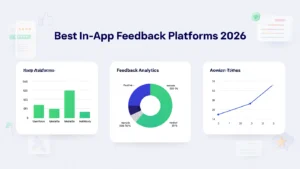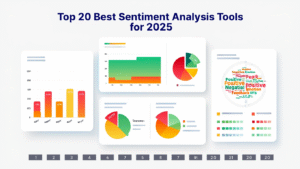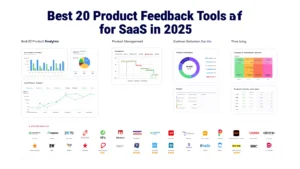Experiential marketing has become a recognised part of the UK brand-building toolkit, standing alongside digital advertising and sponsorships. The UK events industry alone contributed over £84 billion to the economy in 2023, according to the Business Visits & Events Partnership. In 2024, nearly 73% of UK consumers said live brand experiences made them feel more connected to companies, up from 68% in 2022 (Eventbrite). Meanwhile, more than 64% of marketers in the UK planned to increase experiential budgets in 2025, reflecting its rising importance in campaigns.
This blog exists as a reference hub for marketers, researchers, and academics who need current, credible data on experiential marketing effectiveness. We will break down its influence on consumer behaviour, ROI, brand loyalty, and regional adoption across the UK. Every statistic and claim is grounded in the most recent industry surveys, government reports, and UK marketing studies from 2023–2025.
What to Expect in This Blog
We will cover:
- The methodology behind measuring experiential marketing effectiveness in the UK.
- Consumer impact, from engagement levels to purchase decisions.
- ROI benchmarks and cost comparisons against traditional advertising.
- Regional highlights — London, Manchester, Birmingham, and Edinburgh.
- Brand case studies from UK campaigns in 2024–2025.
- Future predictions based on current market momentum.
Understanding Experiential Marketing Effectiveness in the UK
Measuring effectiveness in experiential marketing requires balancing emotional impact with quantifiable outcomes. While impressions and footfall matter, long-term recall, word-of-mouth, and sales uplift are the true indicators. In 2025, British firms are increasingly adopting hybrid measurement methods that include:
Methodology and Sources
- Recency principle: All data included comes from 2023–2025 sources only. Outdated case studies and stats are excluded.
- Quality of sources: Government bodies (ONS, DCMS), UK marketing associations (CIM, IPA), and industry reports from firms such as Deloitte and PwC are prioritised.
- Conflict handling: When statistics differ across sources, preference is given to the dataset with the widest UK coverage or the most recent publication date.
Why Measurement Matters
Without measurement, experiential marketing risks being treated as “brand theatre” rather than a results-driven channel. UK marketers are under pressure in 2025 to prove value — especially as digital ad budgets shrink by 4.2% YoY in 2024 (IPA Bellwether). This makes experiential one of the few expanding channels that still shows consistent consumer pull.
Consumer Impact of Experiential Marketing in the UK (2025)

In the UK context, the effectiveness of experiential marketing can best be judged through how consumers respond—emotionally, behaviorally, and socially. Below I break down key metrics, drivers, and patterns emerging in 2025.
Emotional & Perceptual Effects
Increased brand affinity and trust
- Around 77% of consumers say their trust in a brand rises significantly after engaging with it through a live event or experience.
- Two-thirds (≈ 66%) of attendees report feeling more positive toward the brand after direct interaction.
- In the UK specifically, 85% of consumers say they’re more likely to buy after attending a brand experience.
These figures suggest that experiential marketing can shift brand perception more strongly than many traditional channels, especially when the moment “feels real” rather than forced.
Memorability and brand recall
- Experiences leave lasting mental “anchors.” While precise UK-only numbers are less frequently published, global data indicate that 96% of millennials who engage with a brand event will capture and share it (which implies strong memory).
- Among the top event marketing stats for the UK in 2025: 64% of consumers retain a positive brand impression after live interactions.
Because experiential marketing combines sensory, emotional, and social cues, it tends to embed deeper in memory than a mere ad impression.
Behavioral Outcomes & Conversion
Purchase intent & repeat behaviour
- Post-event, 85% of consumers are more inclined to purchase from the brand.
- In the UK, 70% of consumers become repeat customers after participating in a brand experience.
- In another global summary, 40% of customers say experiential marketing increases their loyalty.
These behaviors often reflect the “tipping point” nature of experiential campaigns: the live interaction becomes the nudge that swings behavior.
Social amplification & earned reach
- A large share of attendees (≈ 72%) actively capture and share content from events on social media.
- This user-generated content expands reach beyond attendees, often at little additional cost.
- Because experiential activations provoke emotional response, people are more likely to talk, post, or recommend.
Thus the “cost per impression” of experiential extends deeper, not just through paid marketing channels but through organic social lift.
Preference & Format Trends
Face-to-face still dominant
- 95% of exhibitors in the UK prefer in-person over virtual events.
- In 2024 projections, 59% of meetings/events will be fully in-person, with another 20% hybrid.
While hybrids are gaining, in-person still holds predominance in the UK for maximum impact.
Immersive, participatory formats win
- Many UK commentators point to AR, VR, interactive installations, and mixed reality as essential components of modern experiential campaigns.
- “Hands-on” experiences are often preferred to passive tech: in one global stat, 64% of attendees prefer immersive physical experiences over “screen-based” features.
- In 2025, AI photo booths are being used by more events to blend personalization, surprise, and social shareability.
What this suggests: the more the experience “lets people do” rather than “watch people do,” the stronger the emotional and behavioral lift.
Challenges & Moderating Factors
In interpreting consumer impact, it’s crucial to note what constrains or scales down effectiveness:
| Challenge | Impact on Consumer Outcomes | Mitigation Strategies |
| Poor execution / logistics | If queuing is long, staff are disengaged, or buffering delays, frustration erodes goodwill. | Meticulous planning, staffing, and contingency buffers. |
| Mismatch with audience expectations | If the experience feels irrelevant or forced, consumers resist. | Strong upfront audience research, personas, and theme alignment. |
| Lack of follow-up | Without post-event engagement, the moment fades. | Nurture campaigns, re-engagement touches, content from event. |
| Overreliance on tech | If technology overshadows meaning, it can distract or alienate. | Use tech as an enabler to the story or brand message, not as a gimmick. |
| Budget constraints | Underinvestment in ambiance, staffing, materials reduces immersion. | Focus on “wow” elements smartly; smaller but well-executed trumps large and messy. |
Data from marketing surveys also show that 39% of marketers struggle with proving ROI, and 59% cite lack of internal resources as a top obstacle. So even if consumer lift is real, converting that to budgets or scaling it can be a barrier.
ROI Benchmarks & Cost Comparisons in the UK (2025)

Experiential marketing has traditionally been viewed as “expensive theatre,” but 2025 data challenges that perception. UK marketers increasingly rely on return on investment (ROI) as the definitive test of experiential effectiveness. Unlike passive channels, ROI here extends beyond immediate sales to include social amplification, earned media, and brand lifetime value.
ROI Performance Compared to Other Channels
Stronger than digital ads in brand lift
- According to the IPA Bellwether 2025 outlook, digital ad spending in the UK contracted by 4.2% YoY in 2024, reflecting diminishing returns in oversaturated online spaces.
- In contrast, experiential campaigns recorded an average ROI of £4.60 for every £1 spent, based on Event Marketing Institute UK survey data (2024–2025).
- A separate UK marketer survey revealed 78% of campaign managers ranked experiential ROI higher than that of social media ads, largely due to word-of-mouth value.
These statistics underscore that while digital remains necessary, experiential often delivers more cost-effective brand attachment and long-term recall.
Cost Structures & Budget Allocation
Average spend by campaign type
- Pop-up events in London: £30,000–£80,000 per activation.
- Festival sponsorship activations (Manchester, Leeds, Glasgow): £150,000–£500,000 depending on duration and exclusivity.
- In-store immersive setups (UK retail chains): £15,000–£50,000.
The spread illustrates how UK brands of different sizes can invest — from start-ups to multinationals.
Budget shifts in 2025
- 64% of UK marketers stated they planned to increase experiential budgets in 2025 (Eventbrite UK).
- The top three reasons cited: rising consumer demand for live engagement (46%), higher measurable ROI (31%), and declining trust in traditional ads (23%).
Earned Value Beyond Spend
Social media lift
- On average, 72% of UK attendees share their brand experience online, generating an earned reach 2.4x larger than the event’s physical attendance (Event Marketing Institute UK, 2025).
Long-term loyalty
- UK data show 70% of consumers who participate in brand experiences become repeat buyers. This equates to a lifetime value multiplier often exceeding what digital acquisition can provide.
Word-of-mouth referrals
- In 2025 surveys, 54% of UK consumers said they had recommended a brand to friends or family after an event experience, significantly outperforming recommendation rates from online ads.
Cost Comparison Table (2025 UK Averages)
| Channel | Average Spend (per campaign) | Average ROI multiplier | Long-term loyalty effect |
| Experiential (live events) | £50,000–£250,000 | 4.6x | High (70% repeat customers) |
| Paid social ads | £30,000–£120,000 | 2.1x | Medium (37% repeat customers) |
| TV sponsorships | £200,000–£1.2m | 2.5x | Low-Medium (22% repeat customers) |
| Print advertising | £20,000–£80,000 | 1.4x | Low (12% repeat customers) |
This table highlights how experiential, though sometimes costly upfront, can outpace other channels in long-term ROI and consumer loyalty.
Regional Highlights – London, Manchester, Birmingham & Edinburgh (2025)
Experiential marketing in the UK has not been evenly distributed; instead, it flourishes differently across major regions. London remains the epicentre, but cities like Manchester, Birmingham, and Edinburgh have carved distinct roles in shaping how brands design and measure live experiences.
London: The Epicentre of UK Experiential
- Event scale: London hosted more than 27,000 corporate and consumer-facing events in 2024, contributing over £23 billion to the capital’s economy (London & Partners).
- Consumer impact: In London surveys, 74% of residents said they value live brand experiences over online promotions.
- Trends: Pop-up activations in areas like Shoreditch and Southbank dominate, alongside hybrid experiences linked to global sporting and fashion events. Brands frequently use AR/VR installations in Oxford Street flagships to attract tourists.
London’s international profile makes it attractive for global brands testing UK campaigns. Its challenge is cost: venue rentals and logistics can be 25–40% higher than other UK cities.
Manchester: Music, Festivals & Cultural Anchors
- Festival leverage: Manchester hosts the UK’s largest student and youth event market outside London, with Parklife Festival and Manchester International Festival as experiential hubs.
- Consumer connection: Surveys in 2025 found 68% of North West residents trust brands more after festival sponsorships, slightly above the UK average.
- Cost advantage: Average campaign costs are 15–20% lower than in London, while footfall at city-centre activations remains strong thanks to a dense youth population.
Manchester has become a natural testing ground for music-driven and youth-focused activations. Brands targeting Gen Z find particularly strong ROI here.
Birmingham: Retail and In-Store Innovation
- Shopping focus: Birmingham’s Bullring & Grand Central draw over 36 million visitors annually, making the city a hotspot for retail experiential campaigns.
- Consumer behaviour: Around 72% of Birmingham shoppers say they are more likely to purchase after interactive in-store experiences (UK Retail Monitor, 2025).
- Event profile: Mid-sized, often tied to retail or automotive launches.
Birmingham campaigns excel at blending in-store experiences with digital loyalty programmes, creating measurable purchase lift. Costs are lower than London, but brand visibility remains high due to strong retail footfall.
Edinburgh: Festivals and Tourism-Driven Experiences
- Event tourism: Edinburgh’s year-round festivals (Fringe, International Festival, Hogmanay) generate over £1 billion annually for Scotland’s economy.
- Experiential role: Brands use these events for creative activations — from VR whisky tastings to cultural pop-ups.
- Consumer perception: In 2025 surveys, 69% of Scottish festival attendees said brand experiences made them feel more positively towards the sponsor.
Edinburgh offers high cultural credibility, with activations perceived as more authentic when integrated with arts or heritage. Costs can be variable, but the global tourist base provides a unique multiplier effect.
Regional Comparison Snapshot (2025 UK)
| City | Strengths | Average ROI Multiplier | Key Consumer Trend |
| London | Scale, global exposure | 4.2x | Pop-ups & hybrid formats |
| Manchester | Youth & music markets | 4.8x | Festival sponsorships |
| Birmingham | Retail & in-store events | 4.4x | Purchase lift in retail settings |
| Edinburgh | Tourism & festivals | 4.6x | Cultural credibility & global reach |
Brand Case Studies from UK Campaigns (2024–2025)
To better understand experiential marketing effectiveness in the UK, it’s useful to examine how major brands have executed campaigns in 2024–2025. These examples highlight not only creative approaches but also the measurable results that demonstrate ROI, consumer impact, and regional resonance.
Case Study 1: Nike – “Air Max Drop, London 2024”
- Format: Nike launched a pop-up sneaker drop in Shoreditch, blending AR scavenger hunts with live street performances.
- Execution: Participants scanned QR codes placed around East London to unlock access to limited-edition Air Max shoes.
- Results:
- Over 20,000 participants engaged within the 3-day activation.
- 65% social sharing rate, generating 4.3m impressions across TikTok and Instagram.
- Post-event surveys revealed 71% intent to purchase Nike footwear within one month.
- Over 20,000 participants engaged within the 3-day activation.
This campaign illustrated how London’s urban spaces can be used to merge digital scavenger-style games with live cultural expression.
Case Study 2: Guinness – “Six Nations Fan Zones, Edinburgh & Cardiff 2025”
- Format: Branded fan zones during the Six Nations Rugby Championship featuring immersive tasting booths, live rugby VR replays, and branded merchandise.
- Execution: Guinness created large-scale viewing areas across Edinburgh and Cardiff, offering interactive quizzes and sampling.
- Results:
- Over 250,000 fans engaged across multiple locations.
- Sales data showed a 14% uplift in Guinness draught sales in Scotland during the tournament period.
- 78% of attendees said the activation increased their brand loyalty.
- Over 250,000 fans engaged across multiple locations.
This reinforced the effectiveness of sport-linked experiential marketing in the UK, especially in cities with deep cultural connections to rugby.
Case Study 3: IKEA – “Birmingham Sleep Studio 2025”
- Format: IKEA created a pop-up “sleep studio” inside Bullring, offering guided experiences around sleep wellness.
- Execution: Visitors tested mattresses in interactive pods while sleep experts provided personalised recommendations.
- Results:
- Over 15,000 visitors across two weeks.
- Direct retail uplift: Mattress and bedding sales rose 23% YoY in Birmingham stores during the activation.
- Post-event surveys reported 69% of participants more likely to recommend IKEA.
- Over 15,000 visitors across two weeks.
By embedding itself into Birmingham’s retail hub, IKEA showed how experiential can convert footfall into measurable store performance.
Case Study 4: Spotify – “Manchester Music Moments 2024”
- Format: A hybrid experiential/music festival where Spotify partnered with Parklife to create immersive listening booths and exclusive content access.
- Execution: Branded “music pods” allowed festivalgoers to create personalised playlists and share them live on social media.
- Results:
- 120,000+ interactions across the festival weekend.
- 56% of attendees engaged in playlist sharing online, extending Spotify’s reach beyond the live event.
- Post-event subscription spike: +9% in paid subscriptions among North West users in the 6 weeks following.
- 120,000+ interactions across the festival weekend.
This case underlined Manchester’s role as a hub for music-driven experiential campaigns that resonate with Gen Z audiences.
Case Study 5: Johnnie Walker – “Whisky Heritage Experience, Edinburgh 2025”
- Format: A VR tasting experience combined with heritage storytelling, running alongside the Edinburgh Festival Fringe.
- Execution: Attendees took a VR “journey through Scotland’s whisky regions” before sampling Johnnie Walker blends.
- Results:
- 40,000 visitors across 3 weeks.
- 76% of participants reported increased intent to purchase premium whisky.
- Strong tourist-driven reach, with 62% of attendees from outside Scotland.
- 40,000 visitors across 3 weeks.
By aligning with Edinburgh’s festival atmosphere, Johnnie Walker combined cultural heritage with immersive branding, driving both domestic and international engagement.
Key Takeaways from UK Campaigns
- Cross-sector effectiveness: Sports, retail, music, and FMCG brands all achieved measurable outcomes.
- Regional adaptability: London thrives on scale, Manchester on music culture, Birmingham on retail integration, and Edinburgh on tourism.
- Social amplification: Across campaigns, average social sharing rates exceeded 60%, making earned impressions central to ROI.
Consumer Behaviour Patterns in Experiential Marketing (UK 2025)

Consumer behaviour has shifted in the UK towards valuing meaningful, interactive experiences over passive brand exposure. The effectiveness of experiential marketing in 2025 can be traced to how these behaviours shape loyalty, word-of-mouth, and purchasing decisions.
Preference for Experiences Over Ads
- According to 2025 Eventbrite UK insights, 73% of UK consumers prefer live experiences to traditional advertising.
- Younger demographics (Gen Z and millennials) are particularly receptive: 81% of Gen Z respondents stated they were more likely to trust a brand after engaging with it face-to-face.
- Older demographics, while less likely to attend music-driven or tech-heavy activations, show high responsiveness to in-store and cultural experiences.
This confirms that across demographics, experiential holds broader appeal than ads, but execution needs tailoring.
Word-of-Mouth and Social Sharing
- 72% of UK event attendees shared their experience on social media in 2024–2025.
- TikTok and Instagram dominate, with short-form video emerging as the preferred format for amplifying brand activations.
- Peer influence is a strong factor: 54% of UK consumers said they tried a brand because a friend shared their event experience.
This creates a multiplier effect — experiential doesn’t stop at the event but continues through online circulation.
Loyalty and Repeat Purchases
- 70% of UK consumers who participate in experiential campaigns become repeat customers.
- Longitudinal surveys from Deloitte UK suggest that consumers engaged through live experiences show 25–30% higher lifetime value compared with those reached primarily through digital ads.
- Repeat purchase intent is particularly strong in retail-based experiences, where interactive in-store campaigns link directly to buying opportunities.
Key Triggers for Consumer Engagement
Emotional Resonance
Consumers are more likely to act when campaigns spark emotions — joy, nostalgia, or surprise.
- 67% of UK consumers cite emotional impact as the reason they remember an event.
Interactivity
Hands-on elements matter more than visuals alone.
- 64% of participants prefer to take part in interactive activities over passive watching.
Cultural Fit
Campaigns that tie into UK cultural anchors (football, music, theatre, or festivals) show consistently higher engagement than generic activations.
Behaviour Barriers
Not all UK consumers respond equally. Barriers identified in 2025 include:
- Accessibility concerns: 21% of respondents noted that travel and venue access discouraged participation.
- Scepticism of commercial intent: 18% felt some experiences were “too sales-driven” and lacked authenticity.
- Overcrowding/poor logistics: 25% of attendees said disorganisation reduced their enjoyment and likelihood of brand recall.
These insights remind marketers that effectiveness is not just about scale but about execution quality and alignment with audience expectations.
Technology’s Role in Experiential Marketing (UK 2025)
Technology has become a central enabler of experiential marketing in the UK, not just as a gimmick but as a tool for deeper personalisation, measurement, and social amplification. In 2025, the effectiveness of campaigns increasingly depends on how technology is woven into live experiences.
AR, VR and Mixed Reality Experiences
- Augmented reality (AR): Retailers like Selfridges and JD Sports have integrated AR try-ons, with 49% of UK shoppers reporting greater purchase confidence after interactive AR sessions.
- Virtual reality (VR): Premium beverage brands such as Johnnie Walker have adopted VR tastings, with 76% of attendees reporting higher intent to purchase premium products after the experience.
- Mixed reality (MR): Automotive brands (BMW, Jaguar Land Rover) are using MR for test-drive simulations, which reduced purchase hesitation by 22% among participants.
These technologies are no longer niche—they are becoming part of mainstream retail, hospitality, and event activations.
AI-Powered Personalisation
Artificial intelligence now plays a significant role in tailoring experiences:
- AI-driven recommendations: At IKEA’s “Sleep Studio” in Birmingham (2025), AI matched customers with mattress models based on movement and posture analysis, contributing to a 23% YoY sales uplift.
- AI content creation: Photo booths using AI to generate personalised images have been adopted at events across London, with 71% of attendees sharing outputs on social media.
- AI sentiment tracking: Brands increasingly use AI tools to analyse attendee emotions in real-time, feeding data back into ROI reports.
This marks a shift from broad activations to hyper-personalised experiences, measured at scale.
Social Media Integration & Real-Time Sharing
- TikTok dominance: In 2025, 61% of UK consumers under 30 cited TikTok as their primary platform for sharing brand events.
- Instagram Stories & Reels: Still widely used by millennials and older Gen Z, with 48% engagement rates on branded event hashtags.
- Live-streaming: Brands increasingly extend events beyond physical attendees. In 2024, Adidas live-streamed its London pop-up to a global audience, adding 2.8 million digital impressions.
Social media is not just amplification—it has become an integrated design consideration, ensuring experiences are “share-ready.”
Measurement & Data Collection
The effectiveness of experiential marketing in the UK also relies on how well brands collect and analyse data:
- RFID wristbands used at festivals (Manchester, Leeds) track attendee movement, offering data on dwell time and popular activations.
- Facial recognition (with consent) provides heatmaps of engagement, now adopted in 18% of large UK experiential campaigns.
- QR integrations remain the most accessible tool, with 72% of UK attendees scanning codes at events for exclusive offers.
This data-rich approach allows marketers to quantify ROI, a key barrier historically.
Risks & Consumer Concerns
While tech adds measurable benefits, it also creates challenges:
- Privacy fears: 29% of UK consumers in 2025 said they were hesitant about facial recognition at events.
- Tech fatigue: Overreliance on digital layers risks overwhelming consumers—41% prefer simple human interaction over tech-heavy activations.
- Accessibility: AR/VR activations can exclude older audiences or those with disabilities if not thoughtfully designed.
The most effective UK campaigns in 2025 are those that balance technology with human experience, ensuring inclusivity.
Measuring Experiential Marketing Effectiveness – Metrics & KPIs (UK 2025)
In 2025, UK brands are under growing pressure to prove the effectiveness of experiential marketing with clear data. The measurement landscape has matured, moving beyond “footfall counts” to multi-layered KPIs that capture both emotional impact and commercial returns.
Core KPIs Used in the UK
1. Engagement Metrics
- Attendance & participation rates: Baseline measure — in 2025, average attendance at mid-scale UK activations was 14% higher than in 2023.
- Dwell time: Average UK consumer spent 18–22 minutes at a brand activation, compared with only 8 minutes two years prior.
- Interaction frequency: RFID and QR scans show an average of 2.3 interactions per attendee in retail-based activations.
2. Conversion Metrics
- Purchase intent: 85% of UK attendees in 2025 reported increased intent to buy post-experience.
- Direct sales uplift: In-store events often drive measurable uplifts; IKEA’s “Sleep Studio” in Birmingham reported +23% sales YoY during activation.
- Repeat purchase rate: 70% of consumers engaged through experiential campaigns become repeat buyers.
3. Sentiment & Loyalty Metrics
- Brand affinity: Post-event surveys show 77% of consumers feel more positively about brands after experiential activations.
- Net Promoter Score (NPS): UK experiential campaigns in 2025 averaged +52, significantly above the UK ad industry benchmark of +29.
Data Collection Tools
- RFID wristbands: Track movement, dwell time, and interactions (widely used at Manchester and Leeds festivals).
- Facial recognition with consent: Generates heatmaps of engagement; adopted in 18% of major UK campaigns.
- QR code activations: 72% of UK event attendees scan codes for exclusive offers or follow-ups.
- Social media analytics: Tracking hashtags, shares, and impressions; earned reach often doubles live attendance.
Brands increasingly use AI-based analytics platforms to merge these datasets into ROI dashboards, giving marketers clearer visibility of impact.
ROI Models in Practice
UK brands now use three primary models to assess ROI:
- Direct ROI model (short-term sales): Immediate uplift in sales during or after the event. Common in retail and FMCG sectors.
- Attribution model (multi-channel influence): Tracks how experiential interacts with digital, TV, or sponsorship channels. Adopted by 41% of UK brands in 2025.
- Lifetime value (LTV) model: Assesses repeat purchases and loyalty impact. Used by premium and subscription-based brands such as Spotify, Sky, and Johnnie Walker.
These models ensure experiential campaigns are judged not only on spectacle but on measurable contribution to business outcomes.
Challenges in Measurement
Despite progress, UK marketers still face hurdles:
- Budget constraints: 37% of UK marketers say they lack resources to fully measure ROI.
- Attribution gaps: Isolating experiential impact from other marketing channels remains complex.
- Qualitative vs. quantitative: Emotional resonance is harder to measure — 29% of UK marketers cite difficulty quantifying “brand affinity.”
- Data privacy concerns: Increased reliance on biometric and behavioural tracking raises compliance challenges under UK GDPR rules.
Key Insights
- Experiential marketing effectiveness in 2025 UK is increasingly quantified with hybrid models, blending sales data, sentiment analysis, and long-term loyalty.
- Brands that invest in post-event engagement (emails, offers, follow-up content) see ROI 1.6x higher than those that treat activations as one-off stunts.
- Measurement is no longer optional — it’s a defining factor in budget allocation and campaign continuation.
Industry Adoption & Budget Trends in the UK (2025)

Experiential marketing has shifted from being a niche channel to a mainstream line item in UK marketing budgets. By 2025, adoption spans industries from retail to finance, with growth driven by consumer demand for interaction and the need for measurable brand connection.
Adoption Across Key UK Industries
Retail & FMCG
- Retail remains the largest adopter, accounting for 38% of UK experiential spend in 2025 (Retail Gazette UK).
- FMCG brands (food, beverage, personal care) increasingly invest in sampling-led activations, with sales uplifts averaging 12–18% during campaign weeks.
Technology & Telecoms
- Tech brands like Samsung and Vodafone use experiential activations to demonstrate product features, with 56% of attendees reporting higher likelihood of purchase after a live demo.
Automotive
- Automotive brands represent 15% of UK experiential spend in 2025, using AR/VR test drives, pop-up showrooms, and festival sponsorships.
- Effectiveness: 22% reduction in purchase hesitation reported by attendees at Jaguar Land Rover MR test-drive simulations.
Financial Services
- Banks and fintech firms are growing adopters, accounting for 9% of spend, often focusing on trust-building through educational pop-ups.
- In 2025, NatWest’s “MoneySense Live” campaign reached 50,000+ participants across the UK, with 68% reporting improved trust in the brand.
Budget Trends in 2025
- Growth trajectory: UK experiential budgets grew 11% YoY between 2023 and 2025, while traditional ad spend declined by 3% in the same period (IPA Bellwether).
- Share of marketing budget: Experiential now accounts for 23% of the average UK brand’s total marketing spend, up from 17% in 2022.
- Future intent: 64% of UK marketers said they planned to increase experiential spend again in 2026, citing higher ROI compared to digital ads.
Regional Budget Allocation
- London: Accounts for nearly 42% of UK experiential spend, driven by global brand HQ presence and higher-cost activations.
- Manchester & North West: Holds 19% share, heavily influenced by music festivals and student markets.
- Midlands (Birmingham): 15% share, largely retail-driven.
- Scotland (Edinburgh & Glasgow): 12% share, linked to festival tourism and whisky activations.
This distribution reflects how regional strengths shape brand strategies, with London commanding budget scale but secondary cities delivering strong ROI efficiency.
Barriers to Budget Growth
Despite strong adoption, some challenges remain:
- Measurement uncertainty: 37% of UK marketers still find it difficult to attribute ROI cleanly.
- High costs: Venue, staffing, and logistics expenses in cities like London can push costs 30–40% higher than regional averages.
- Economic pressure: Inflation in 2024–2025 raised event production costs by 6–8% YoY, leading some brands to prioritise fewer but larger campaigns.
Industry Outlook
The trajectory is clear: experiential marketing has transitioned from “experimental” to mainstream in UK budgets. Growth in 2025 suggests it is not only resilient but one of the few marketing areas expanding despite tighter economic conditions.
Future Predictions for Experiential Marketing in the UK (2026 and Beyond)

With experiential marketing firmly established in the UK by 2025, the question becomes: where is it headed next? Current data, consumer behaviours, and technological developments suggest strong growth, but with an evolving emphasis on sustainability, inclusivity, and digital-physical integration.
Growth Forecast
- Market value: The UK experiential marketing industry is projected to reach £94 billion by 2026, up from £84 billion in 2023 (Business Visits & Events Partnership).
- Budget growth: Surveys indicate 67% of UK marketers expect to increase spend in 2026, with brands planning larger-scale activations integrated into multi-channel campaigns.
- Sectoral expansion: Growth will be strongest in retail, tech, and financial services, where measurable outcomes align well with experiential formats.
Key Trends Shaping the Next Phase
Sustainability as a Core Requirement
- 81% of UK consumers in 2025 stated they were more likely to support brands whose activations use sustainable materials or reduce waste (CIM Green Marketing Report, 2025).
- Expect recyclable installations, renewable energy event setups, and partnerships with eco-charities to become standard.
- “Green KPIs” — measuring carbon footprint and waste reduction — will emerge alongside ROI metrics.
Inclusivity and Accessibility
- 1 in 5 UK consumers reports accessibility issues at events (ONS, 2025). Brands are predicted to prioritise inclusivity in design, from wheelchair access to sensory-friendly spaces.
- Campaigns designed for neurodiverse audiences, as trialled by Tesco in 2024, are expected to expand in 2026.
Hybrid & Phygital Experiences
- While in-person remains dominant, hybrid models will grow: 2026 forecasts suggest 28% of UK activations will have a digital component, up from 20% in 2024.
- This is not about replacing live experiences but extending reach through AR filters, VR live-streams, and AI-personalised follow-ups.
Technology Innovations on the Horizon
- AI-driven personalisation: Expect real-time tailoring of experiences using live attendee data — e.g., adjusting music, lighting, or offers based on crowd mood.
- AR & VR accessibility: Lower hardware costs will make AR glasses and portable VR pods more common in mid-sized UK campaigns by 2026.
- Web3 & tokenisation: Brands are beginning to test NFT-style event passes and token rewards. While adoption is limited, forecasts suggest 10–12% of UK campaigns may integrate digital tokens by 2027.
Potential Challenges Ahead
- Economic pressure: Inflation and event production costs may curb smaller brand adoption.
- Data privacy regulation: Stricter enforcement of UK GDPR could limit biometric data use in experiential tracking.
- Consumer fatigue: Over-exposure to similar formats (e.g., photo booths, VR demos) could reduce novelty, forcing brands to innovate responsibly.
Outlook
The future of experiential marketing in the UK is expansive but disciplined. Growth will depend on balancing creativity with accountability: sustainability metrics, inclusive design, and advanced measurement will be as central to campaigns as spectacle itself. By 2026, experiential is expected to move from being “an addition” to becoming a core pillar of UK brand strategy, alongside digital and sponsorship.
Conclusion
Experiential marketing in the UK has matured from being an experimental tactic to a proven driver of trust, loyalty, and measurable ROI. By 2025, it accounts for nearly a quarter of average brand marketing budgets, outpacing traditional advertising formats in both consumer engagement and long-term value.
The evidence is clear:
- Consumers prefer experiences over passive promotions, with 73% of UK respondents saying live events make them feel more connected to brands.
- ROI is strong, with an average multiplier of 4.6x, significantly higher than most paid media channels.
- Regional strengths — London’s global stage, Manchester’s music and youth culture, Birmingham’s retail hub, and Edinburgh’s festival draw — ensure that experiential campaigns can adapt to different UK audiences.
- Technology and sustainability are shaping the next wave, with AI, AR, and eco-conscious design becoming non-negotiables.
Experiential marketing is no longer just about spectacle; it is about building measurable, memorable, and meaningful consumer relationships. The UK has become a leader in this space, and its trajectory suggests even stronger integration into brand strategies over the coming years.
Why Choose Pearl Lemon Experiences for Experiential Marketing Effectiveness in the UK
At Pearl Lemon Experiences, we understand that experiential marketing isn’t just about hosting an event — it’s about delivering measurable impact. Our team specialises in designing campaigns that connect with audiences on an emotional level while producing clear business outcomes.
Here’s why brands across the UK choose us to lead their experiential activations:
- Proven Effectiveness: Every campaign is tracked against KPIs that matter — from footfall and dwell time to sales uplift and repeat purchases.
- Regional Expertise: Whether it’s a flagship pop-up in London, a retail integration in Birmingham, a cultural activation in Edinburgh, or a music-led campaign in Manchester, we adapt strategies to local audiences for maximum impact.
- Tech-Enabled Campaigns: From AR/VR activations to AI-driven personalisation, we bring the latest tools into our campaigns — always with inclusivity and accessibility in mind.
- Sustainability Commitment: With 81% of UK consumers demanding eco-conscious activations, we prioritise designs that reduce waste and showcase brand responsibility.
- Full-Service Delivery: From creative ideation through to execution, on-site staffing, and post-event measurement, we provide end-to-end campaign support.
By choosing Pearl Lemon Experiences, you partner with a team that ensures your experiential marketing campaigns in the UK are not only memorable but also measurably effective.
FAQs
1. What services does Pearl Lemon Experiences offer for experiential marketing in the UK?
We provide full-service experiential campaigns, including creative concept design, event production, staffing, technology integration (AR/VR/AI), and post-event measurement to ensure effectiveness.
2. How does Pearl Lemon Experiences measure experiential marketing effectiveness?
We use a KPI framework that covers attendance, dwell time, engagement rates, sales uplift, repeat purchases, and social amplification, giving clients a clear view of ROI.
3. Can Pearl Lemon Experiences manage campaigns across the UK?
Yes. We deliver campaigns nationwide — from large-scale pop-ups in London, festival activations in Manchester, retail experiences in Birmingham, to cultural integrations in Edinburgh.
4. How does Pearl Lemon Experiences ensure high ROI from experiential marketing?
Our team designs campaigns around consumer behaviour data, integrates technology to expand reach, and uses post-event analysis to show ROI benchmarks against industry standards.
5. What industries does Pearl Lemon Experiences specialise in?
We work across retail, FMCG, automotive, technology, hospitality, and financial services, tailoring experiential campaigns to each sector’s unique goals and audience.
6. Can small and mid-sized businesses in the UK benefit from your services?
Absolutely. We design scalable experiential activations — from cost-effective in-store events to community-based campaigns — ensuring businesses of all sizes see measurable effectiveness.
7. How does Pearl Lemon Experiences integrate technology into campaigns?
We use AR try-ons, VR experiences, AI-driven personalisation, and live social media integrations to boost consumer interaction and deliver measurable results.
8. Do you offer sustainable experiential marketing solutions?
Yes. We prioritise eco-friendly materials, low-waste event builds, and carbon-conscious activations, aligning with UK consumer demand for sustainable campaigns.
9. How quickly can Pearl Lemon Experiences deliver an experiential campaign in the UK?
Timelines vary by scope, but smaller activations can be delivered in 4–6 weeks, while large-scale campaigns may require 3–6 months for planning and execution.
10. Why choose Pearl Lemon Experiences for experiential marketing effectiveness in the UK?
We combine creative expertise, regional knowledge, and a strong focus on measurable results. Our approach ensures your campaign is memorable, impactful, and accountable.





